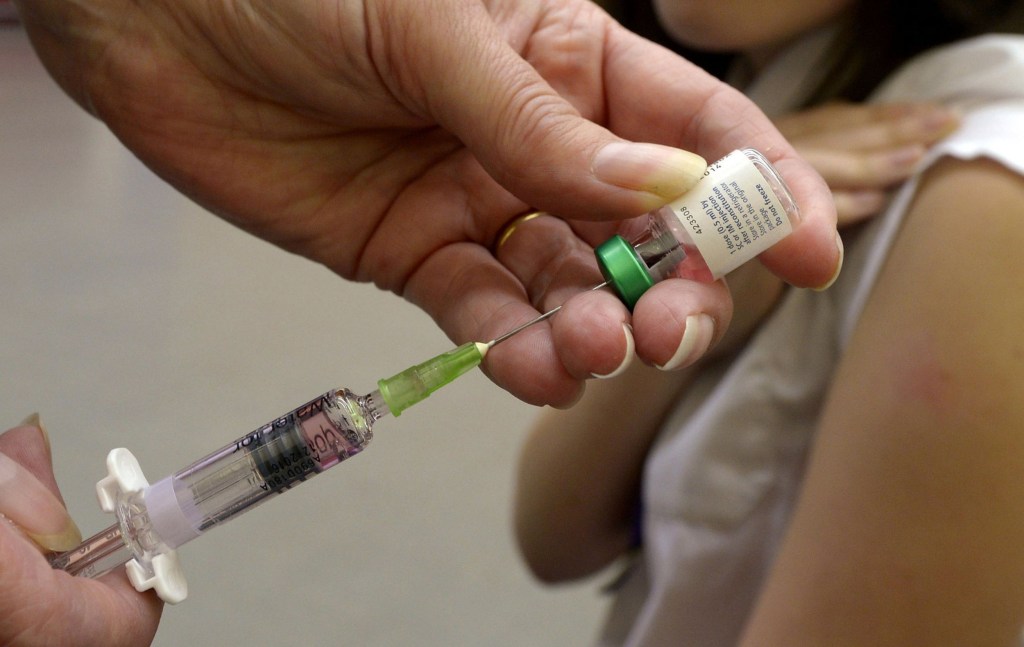Parents and carers across England are being urged to ensure their kids are vaccinated against measles as a national incident was declared over the spread of the disease.
In the West Midlands, there have been 216 confirmed measles cases and 103 probable cases since the beginning of last October.
Most of the cases there were recorded in children aged ten or under.
Officials have said the downward trend in kids receiving the MMR jabs against measles, mumps and rubella is a ‘serious concern’.
In response, the NHS has launched a campaign targeting all parents with children aged between six and 11, calling on them to make an appointment for any missed vaccines.
More than a million people aged 11 to 25 in London and the West Midlands, areas which have a particularly low uptake, will also be contacted.
Steve Russell, director of vaccinations and screening at the NHS, warned that one in five children who get measles have to be admitted to hospital for treatment.
He said: ‘People who are unvaccinated can get catch-up jabs at pop-ups in schools and other convenient places, while GPs, teachers and trusted community leaders are encouraging groups that are less likely to get their jab to come forward.
‘All this builds on the national MMR catch-up campaign the NHS rolled out at the beginning of winter, with text, email and letter reminders sent out to parents and guardians of children up to five who have yet to get full protection.’
What is measles?
Measles is an infection that spreads very easily and can cause serious problems in some people.
At first, it might appear as a high temperature, runny nose, or cough, but after a few days those infected usually form a distinctive rash and can also get small spots in their mouths.
The disease can lead to serious problems if it spreads to other parts of the body, such as the lungs or brain.
Problems that can be caused by measles include:
Pneumonia
Meningitis
Blindness
Seizures (fits)
These problems are rare, but some people are more at risk. This includes babies and people with weakened immune systems.
Source: NHS
The MMR jab, which is described as ‘safe and effective’ by NHS England, protects around 99% of people against measles and rubella after two doses, while about 88% are protected from mumps.
On a visit to Birmingham on Friday, UKHSA chief executive Dame Jenny Harries said the World Health Organisation tells countries to aim for a 95% coverage rate.
‘If you look at the whole country, our vaccination rate has dropped down to about 85% for children getting to school with two MMR vaccinations, which is what is needed,’ she said.
The MMR vaccine is typically offered to babies aged one, with the second dose given at three years and four months (Picture: Geoffrey Swaine/Shutterstock)
‘In some areas, these are going right down to about 70% and that is too low to maintain safe population coverage, we want that at about 95%.’
Dr Gayatri Amirthalingam, consultant medical epidemiologist at UKHSA, said: ‘The continuing downward trend in the uptake of routine childhood vaccinations is a serious concern.
‘The diseases that these vaccines protect against, such as measles, can be life-changing and even deadly. No parent wants this for their child especially when these diseases are easily preventable.’


